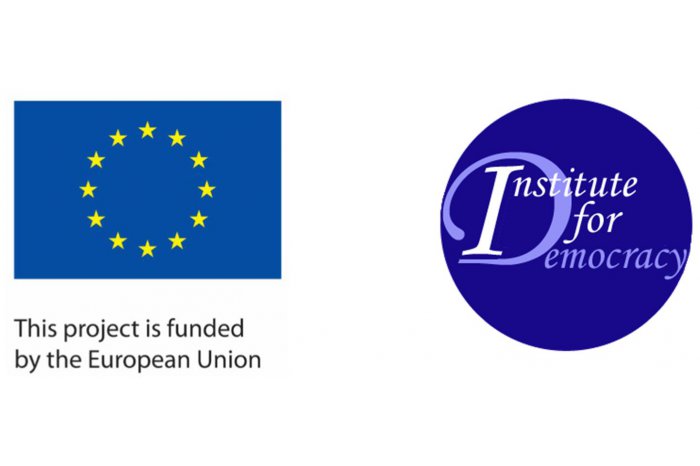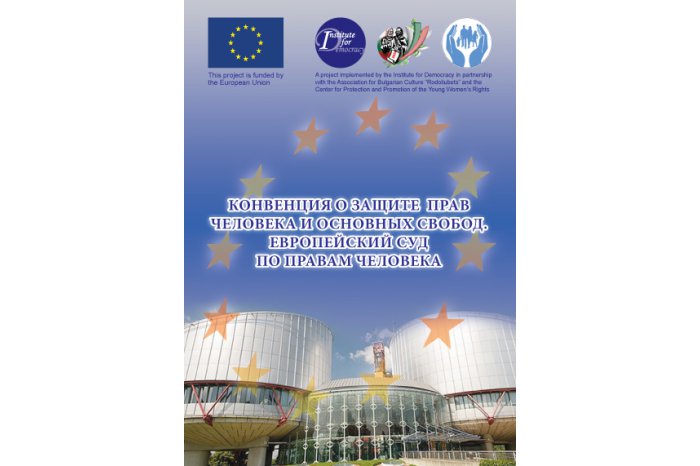Institute for Democracy (Comrat), with support of European Union, published new book
11:19 | 28.12.2017 Category: Social
Chisinau, 27 December /MOLDPRES/- Within the framework of the project "Raising Mutual Trust between Teachers on Both Banks of the Nistru River: Building Regional Capacities for Continuous Development of Teachers’ Skills of the Modern Pro-active Methods of Human Rights Education", funded by the European Union, in 2017, the Institute for Democracy published the book " Convention for the Protection of Human Rights and Fundamental Freedom. European Court of Human Rights".
The relevance of the topic is due to the fact that protection of fundamental human rights and freedoms, today, is emerging from the jurisdiction of states, it ceases to be exclusively an internal matter of each state and becomes an object of protection of the entire world community.
The issue of protection of constitutional rights and freedoms, on international level, became even more important, after Moldova ratified the Convention for the Protection of Human Rights and Fundamental Freedom, on July 24, 1997.
Having joined the Convention, the Republic of Moldova made a very difficult decision: in case when the European Court of Human Rights establishes facts of violation of human rights by state bodies, the state is obliged to eliminate the violations committed.
From this significant moment - Convention ratification - the Republic of Moldova embarked on the democratic path of development, became a member of the large "European family", called the Council of Europe, and committed itself to guarantee protection of the rights and freedoms, set forth in the 1950 Convention, of all the people who are under its jurisdiction.
Both, the Convention and its monitoring mechanism (European Court of Human Rights), are truly recognized as one of the most effective mechanisms for protecting human rights. In his speech at the opening of another court year, former President of the European Court, Lucius Wildhaber, described the European Court of Human Rights "as a symbol and embodiment of an ideal of the society, where a commonwealth of effective democracy and the rule of law will ensure political stability and economic prosperity along with self-realization of any individual".
The book analyzes the Convention for the Protection of Human Rights and Fundamental Freedoms and its role, by implementation of the constitutional right to protection in the European Court of Human Rights, analyses normative acts of the Republic of Moldova, detailing the right to protection, examines the realization of the right to defense at the European Court of Human Rights. The book also investigates some cases of the European Court of Human Rights, in connection with complaints, lodged against the Republic of Moldova, the most frequently violated rights and freedoms, that are enshrined in the Convention for the Protection of Human Rights and Fundamental Freedom, and specific proposals have been made to improve legislation, regulating the right to judicial protection and mechanisms for its implementation. In the appendix the book contains instructions on how to fill out a new application form to the European Court of Human Rights and the Application Form to the European Court of Human Rights.
Thus, any citizen on the basis of this book, can independently prepare and file a complaint with the European Court of Human Rights.
The publication of this book in Russian is very useful, especially for NGOs, human rights defenders, teachers and other citizens of Moldova (including from Gagauzia and Transnistria).
The practical nature of the book makes it a very important and valuable aid and assistant to the European Court of Human Rights.


